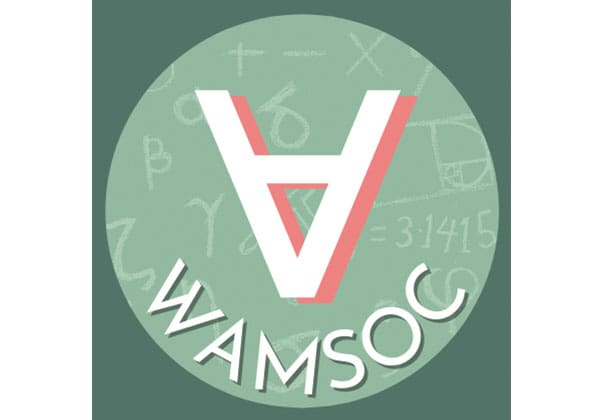On October 13, the Women and Diverse Genders in Maths Society (WAMSOC) was officially founded and their first executive elected at their inaugural general meeting, closing with 53 members and 10 executives.
This comes as the first academic society to expressly include gender diversity in its name. WAMSOC Vice President, Anna-Sophia Zahar, told Honi that this was an “always non-negotiable” aspect of the society’s formation.
The founding members of WAMSOC, Jennifer Chen, Mai Nielsen, Sophie Doherty and Zahar, were inspired to create the society after participating in the Women and Diverse Genders in Advanced Maths & Statistics Mentoring Program provided by the Faculty of Mathematics, directed by Dr Zsuzsanna Dancso and supported by Dr Emma Carberry.
Reflecting on her own experiences, Zahar explains that as a result of frequently being one of the only non-cis male students in the class, “you immediately feel some level of imposter syndrome.” She continued, saying that “to the extent that I can sometimes feel like an outsider as a cis-woman in maths, I’m sure that for someone who is non-binary … that would be just as, if not more, scary and hard.”
Zahar told Honi that there is a significant gender disparity in advanced mathematics classes, even compared to the disparity within standard mathematics classes. “Giving non-cis men the confidence to enter those courses is really important … it’s really hard to do your absolute best when you’re not feeling confident.”
Citing the main goal of WAMSOC as growing an inclusive, safe space for members to ask questions, seek advice, and make friends. Grace Lee, an executive member who grew up in Hong Kong, also has a passion for supporting international students in this intersection of the USyd Mathematics cohort.
Shortly after, amongst the regular slew of Annual General Meetings in October, the Women in Science Society (WISSOC) voted to amend their constitution in several places. Amongst the slate of changes was an update to the language of “female identifying students” to “female identifying and/or gender non conforming students” to expand inclusivity.
The motion passed without dissent and is awaiting approval from the University of Sydney Union (USU) before it can officially be written into the WISSOC constitution.
2022 President and 2021 Treasurer Jayfel Tulabing told Honi that WISSOC has always been a diverse society and that “although we had this informal process of accepting anyone into our society, we wanted to formalise it… and that’s very exciting because just within our own executive, many of us are queer and use they/them pronouns.”
Competing with large faculty societies, such as Sydney University Science Society (SCISOC) and Sydney University Mathematics Society (SUMS), I asked Zahar and Tulabing how their respective societies operate within the larger USyd STEM society landscape.
Zahar emphasised that there was still a need for a safe social space for non-cis men in maths, stating that “WAMSOC was not started because of a deficiency in SUMMS… but because it provides a different service as being a unique place that is a safe space just for women and gender minorities.”
Similarly, Tulabing said that although SCISOC is a phenomenal society, “It’s more important now than ever to establish a really cemented WISSOC as the inclusive female and gender non-confirming space for science on campus.” Some STEM societies, like the Sydney University Queer STEM Society (QUEST) have taken this sentiment to heart. QUEST had their AGM last Thursday, October 28, and voted to officially change their name with the USU.
Looking to solidify itself as the overarching science society for queer students, formerly known as Sydney University Queer Engineers, the society has been informally going by QUEST since their AGM last year, after problems confirming the change with the Clubs and Societies Office in 2020.
2021 QUEST President, Sophia Costantino, told Honi that “It’s important to provide a safe community for LGBTQIA+ students in STEM, because often we face barriers within our academic and corporate fields.”
“We simultaneously act as a safe community and a way to advocate for cultural improvements within STEM.”





